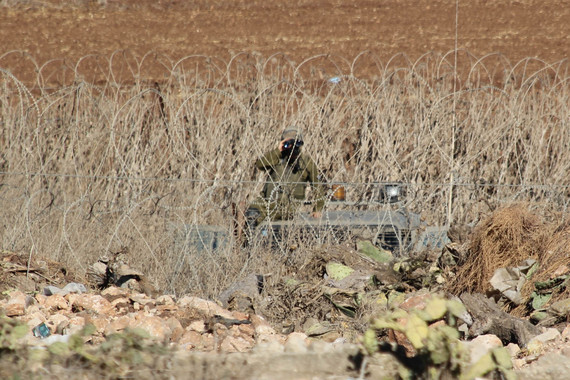
The Holy Land is supposed to be a far-away place. So it has been ever since Peter and Paul journeyed there from Rome, since “next year in Jerusalem” became exilic Jews’ sigh of resolve or resignation, since the prize of that city excused crusades, since London redrew the map of Palestine as a solution to the Jewish Problem, since Birthright trips have taken suburban twenty-somethings to sip tea in Bedouin tents. Thus the place can appear especially distant even after you go there, and meet the people for whom it is, simply, home. In some sense you’ve been there all along and can never leave.
I went to the West Bank last September with little eagerness or preparation of my own, but on the urging of a colleague who once wrote a book about the First Intifada. The place had always seemed, to my head, comfortably remote—a notorious source of trouble I preferred not to assume for myself. I went only because my colleague made doing so seem easier than the alternative. She arranged for me to join the Freedom Theatre, based in the West Bank town of Jenin, for a ten-day tour of performances throughout the region. After the arrangements were all settled, I mentioned them to friends familiar with Israeli-Palestinian affairs and was told, “Woah. Be careful.”
Because traveling to the West Bank makes one immediately suspect in the eyes of Israeli security, I prepared ahead of time a story about being a religious tourist in the process of finishing a book—technically true—about proofs for the existence of God. I rehearsed the fictitious details over and over in my head. With every word I wrote in my notebook, there was the superego of the Israeli intelligence officer watching over my shoulder. A fellow journalist told me about the time when a film he’d made in Palestine was erased from his hard drive as he was interrogated at Ben Gurion Airport. Another had just been banned from the country. These are some of the techniques of presenting distances as greater than they actually are, and of giving words meanings other than the reality to which they refer.
Read about the trip in a new essay published at Killing the Buddha called “The Hourglass.” It also appears in slightly different form at Waging Nonviolence.